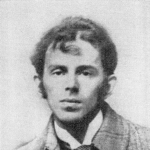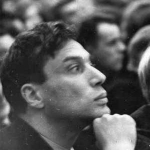Background
Maria Veniaminovna Yudina was born on August 28, 1899 in Nevel, Pskov Oblast, Russian Federation. Her father, Veniamin Yudin, was a renowned physiologist and forensic expert, while her mother was Raisa Yudina.

Maria Veniaminovna Yudina was born on August 28, 1899 in Nevel, Pskov Oblast, Russian Federation. Her father, Veniamin Yudin, was a renowned physiologist and forensic expert, while her mother was Raisa Yudina.
Maria Veniaminovna studied at the Petrograd Conservatory (now the N. A. Rimsky-Korsakov Saint Petersburg State Conservatory) under Anna Yesipova and Leonid Nikolayev. She also briefly studied privately with Felix Blumenfeld.
Her classmates included Dmitri Shostakovich and Vladimir Sofronitsky. In 1921-1922 Maria Veniaminovna attended lectures at the historical-philological department of Petrograd University and, as a result, completed studies in theology after she had already converted from Judaism to the Orthodox Christian faith in 1919.
After her graduation from the Petrograd Conservatory, Maria Veniaminovna was invited to teach there, which she did until 1930, when she was thrown out of the institution because of her religious convictions and vocal criticism of the Soviet leadership. After being unemployed and homeless for a couple of years, she was invited to teach the graduate piano course at the Tbilisi State Conservatory in 1932-1933.
In 1936, on Heinrich Neuhaus's suggestion, Maria Veniaminovna joined the piano faculty of the Moscow Conservatory, where she taught until 1951. From 1944 to 1960 she taught chamber ensemble and vocal class at the Gnessin Institute (now Gnessin Russian Academy of Music). In 1960 Maria Veniaminovna was thrown out of the Gnessin Institute because of her religious attitudes and advocacy of modern Western music. She continued to perform in public, but her recitals were forbidden to be recorded. After an incident during one of her recitals in Leningrad (now Saint Petersburg), when she read Boris Pasternak's poetry from the stage as an encore, she was banned from performing for five years. In 1966, when the ban was lifted, she gave a cycle of lectures on Romanticism at the Moscow Conservatory.
Maria Veniaminovna remained an uncompromising critic of the Soviet regime. She died in Moscow in 1970.
Quotes from others about the person
Sviatoslav Richter said of her playing: "She was immensely talented and a keen advocate of the music of her own time: she played Stravinsky, whom she adored, Hindemith, Krenek and Bartók at a time when these composers were not only unknown in the Soviet Union but effectively banned. And when she played Romantic music, it was impressive—except that she didn't play what was written. Liszt's Weinen und Klagen was phenomenal, but Schubert's B-flat major Sonata, while arresting as an interpretation, was the exact opposite of what it should have been, and I remember a performance of the Second Chopin Nocturne that was so heroic that it no longer sounded like a piano but a trumpet. It was no longer Schubert or Chopin, but Yudina."






